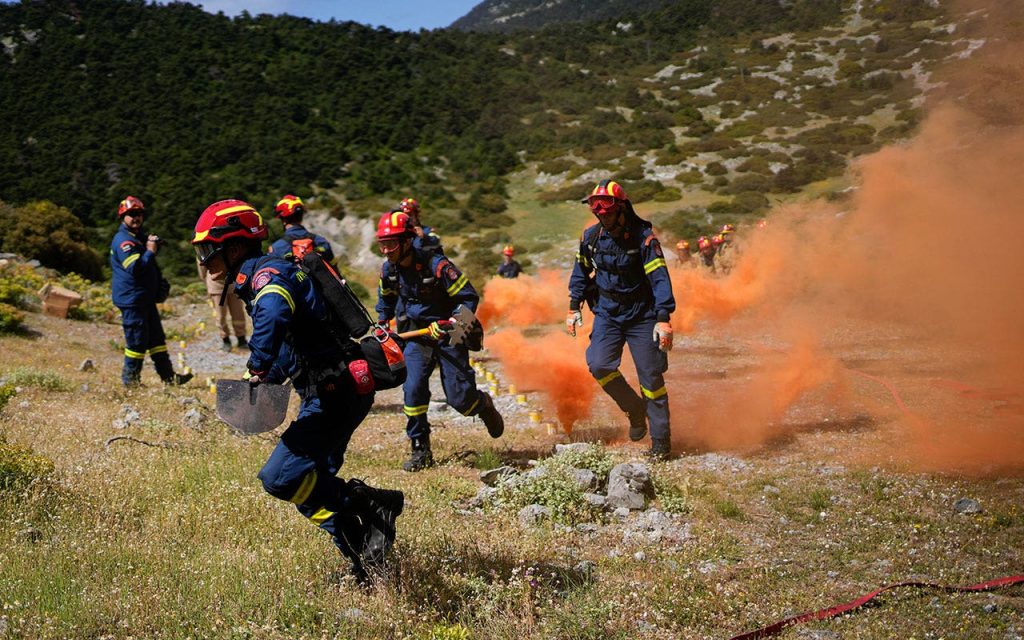Greece’s fire season has begun prematurely due to high temperatures, with dozens of fires already extinguished. To combat the escalating fire threat, Greece is increasing its specialized firefighting units to 1,300 and adopting tactics from the U.S. Crew members are acquired through training collaborations with countries like France, Spain, and the U.S. A crew from the 1st Wildfire Special Operation Unit is well-equipped with tools needed to hold back fires, including chainsaws, specialized rakes, and earth-scorching drip torches.
Greece’s fire season officially starts on May 1st, but fires have already been put out due to temperatures reaching 86 degrees Fahrenheit in late March—higher than in previous years. Greece is doubling the number of firefighters in specialized units to try and outflank fires with airborne units. Crew members have varied skills developed through training collaborations with other countries. A more scientific approach is being taken towards fires in Greece, measuring humidity, wind, and other factors to plan out methods of suppression.
Greece has launched a $2.3 billion program to overhaul its disaster response capability, ordering new equipment such as water-dropping aircraft, drones, and fire trucks. An artificial intelligence-driven sensor network is also being implemented to detect early signs of smoke and flooding. However, the new equipment won’t arrive until 2025, prompting Greek authorities to focus on training and new firefighting methods. Last year, fires burned an estimated 1,750 square kilometers, with a particularly devastating blaze in northern Greece.
Windy and mountainous Greece faces an annual challenge in defending urban settlements that overlap with wooded areas at risk of wildfires. The country has been experiencing rising temperatures, with the past decade containing the six warmest Greek winters on record. Data shows that Europe is the fastest-warming continent globally, with temperatures rising at twice the global average. Greek authorities are preparing for a tough fire season this year due to a dry winter and ongoing elevated temperatures.
Throughout April, firefighters have been stepping up exercises and training, using new facilities like the Fire Dragon, which simulates the inside of a burning building. The Fire Service has been conducting exercises to prepare for close-quarter techniques and rescues, utilizing heavy protective gear and oxygen tanks. Retiree Chrysoula Renieri, who lost her home in the 2023 fires, expressed hope that the Fire Service’s new equipment and methods might make a difference for others facing similar situations in the upcoming fire season.
In conclusion, Greece is bracing itself for a challenging fire season this year, with conditions expected to worsen due to a dry winter and soaring temperatures. The country is increasing its specialized firefighting units and adopting new tactics from countries like the U.S. Collaborations with other nations have helped in developing varied skills among crew members. Greece has launched a significant program to overhaul its disaster response capability, but new equipment won’t be available until 2025. The focus is on training and new firefighting methods to combat the escalating fire threat and protect communities at risk.


